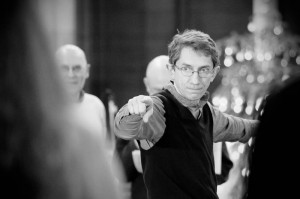(Monday)
The son of a Venetian linen weaver, Giovanni Gabrieli took his surname not from his father but from his uncle, the composer Andrea Gabrieli. Donald Macleod looks at the life and music of the celebrated Venetian organist and composer, focusing today on his relationship to his illustrious namesake..
The son of a Venetian linen weaver, Giovanni Gabrieli took his surname not from his father but from his uncle, the composer Andrea Gabrieli. Donald Macleod looks at the life and music of the celebrated Venetian organist and composer, focusing today on his relationship to his illustrious namesake..



Comment